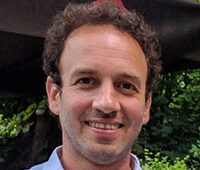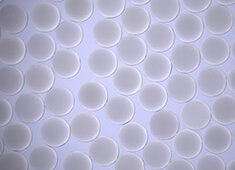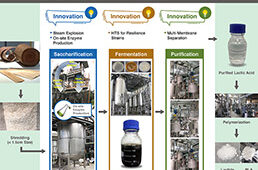 Constantly losing energy is something we deal with in everything we do. If you stop pedaling a bike, it gradually slows; if you let off the gas, your car also slows. As these vehicles move, they also generate heat from friction. Electronics encounter a similar effect as groups of electrons carry information from one point to another. As electrons move, they dissipate heat, reducing the distance a signal can travel. DARPA-sponsored researchers under the Mesodynamic Architectures (Meso) program, however, may have found a potential way around this fundamental problem.
Constantly losing energy is something we deal with in everything we do. If you stop pedaling a bike, it gradually slows; if you let off the gas, your car also slows. As these vehicles move, they also generate heat from friction. Electronics encounter a similar effect as groups of electrons carry information from one point to another. As electrons move, they dissipate heat, reducing the distance a signal can travel. DARPA-sponsored researchers under the Mesodynamic Architectures (Meso) program, however, may have found a potential way around this fundamental problem.
Meso program researchers at Stanford Univ. recently predicted stanene will support lossless conduction at room temperature. Stanene is the name given by the researchers to 2-D sheets of tin that are only one atom thick. In a paper appearing in Physical Review Letters the team predicts stanene would be the first topological insulator to demonstrate zero heat dissipation properties at room temperature, conducting charges around its edges without any loss. Experiments are underway to create the material in laboratory conditions. If successful, the team will use stanene to enhance devices they are building under the Meso program.
“We recently realized there is another state of electronic matter: a topological insulator. Materials in a topologically insulating state are like paying for the gasoline to accelerate your car to highway speeds, but then cruising as far as you want on that highway without using up any more gas,” said Jeffrey Rogers, DARPA program manager. “Experiments should tell us what penalty electrons would pay for connecting to stanene in a practical application. However, the physics of stanene point to zero dissipation of heat—meaning electrons take an entropy hit once and then travel unimpeded the rest of the distance.”
Researchers at Stanford reported the first topological insulators in 2006 under a previous DARPA effort known as the Focus Center Research Program. The current Meso program developed the theory for stanene as part of research into more efficient ways to move information inside microchips. Other materials’ capabilities have come close, but only at temperatures that require extreme sub-zero temperatures created with bulky methods such as liquid helium.
“Stanene is a bold, yet compelling prediction,” said Rogers. “If the experiments underway confirm the theory, the application of a new lossless conductor becomes a very exciting prospect in the world of electronics. A host of applications—almost any time information is moved electronically from one place to another—could benefit.”
Mesodynamic Architectures (Meso) program
Physical Review Letters paper: Large-Gap Quantum Spin Hall Insulators in Tin Films




